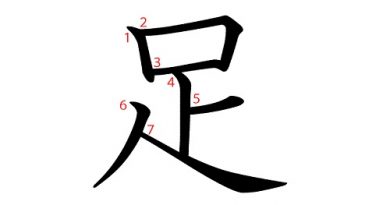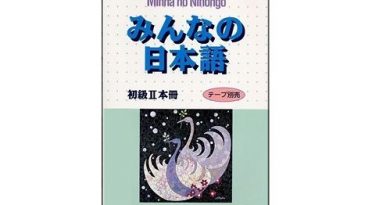Learn minna no nihongo lesson 48
Contents
- 1 6. Mondai
- 1.1 Exercise 1: Listen and answer the questions
- 1.2 Exercise 2: Listen and choose true or false
- 1.3 Exercise 3: Give the true form of the verbs
- 1.4 Exercise 4: Fill in the blank
- 1.5 Exercise 5: Complete the sentence with the given words
- 1.6 Exercise 6: Choose the suitable word
- 1.7 Exercise 7: Read the paragraph and answer the questions
6. Mondai
Exercise 1: Listen and answer the questions
Question :
1. あなたの 国では 両親は 子どもに どんな 手伝いを させますか。
Anata no kunide wa ryoushin wa kodomo ni donna tetsudai o sasemasuka.
What chores will the parents in your country make the children do?
2. あなたは 子どもに どんな ことを 習わせたいですか。
Anata wa kodomo ni donna koto o narawasetai desuka.
What do you want your child to learn?
3. 会社や 学校で 気分が 悪く なって、早く 帰りたい とき、何と 言いますか。
Kaisha ya gakkou de kibun ga waruku natte, hayaku kaeritai toki, nan to iimasuka.
When you feel sick at work or school and want to go home early, what will you say?
Answer :
1. 食事の 準備を 手伝わせます。
Shokuji no junbi o tetsudawasemasu.
They will let the children help prepare meals.
2. ピアノや 水泳を 習わせたいです。
Piano ya suiei o narawasetai desu.
I want to let my child learn piano or swimming.
3. 「気分が 悪いので、早退させて いただけませんか」と 言います。
“Kibun ga waruinode, soutai sasete itadakemasenka” to iimasu.
I will say “I’m feeling sick, so would you please let me leave earlier?”.
Exercise 2: Listen and choose true or false
1.
男:もしもし、太郎です。ハンス君、お願いします。
Hello, I’m Taro. Please let me talk to Hans.
女:ああ、太郎君。すみません。今 ハンスは ちょっと 出かけて います。帰って 来たら、かけさせましょうか。
Oh, Taro. I’m sorry. Hans is going out for a moment. When he returns, I will tell him to call you back.
男:はい、お願いします。
Yes, please.
★ ハンス君は あとで 太郎君に 電話を かけます。
★ Hans will call Taro later.
Answer:(〇)
2.
男:飛行機は 何時に 着きますか。
When does the plane arrive?
女:あしたの 午後 4時半です。
At 4:30 pm tomorrow.
男:じゃ、娘を 迎えに 行かせますから、ロビーで 待って いて ください。
Then I’ll let my daughter go to pick you up, so please wait in the lobby.
女:すみません。お願いします。
Excuse me. Please.
★ 男の 人は 女の 人を 迎えに 行きます。
★ The man will go to pick up the woman.
Answer:(✖)
3.
男:このごろ 子どもたちを 見ませんね。外で 遊ばないんですか。
I haven’t seen your child recently. Does she not play outside?
女:ええ、学校から 帰ってから、ピアノとか 水泳を 習いに 行くんです。
Yeah, after going home from school, she goes to learn piano or swimming.
男:そうですか。
Is that so.
女:わたしも 娘に 絵を 習わせて います。
I also let my daughter learn drawing.
★ 女の 人の 子どもは うちへ 帰ってから、絵を 習いに 行きます。
★ The woman’s child goes to learn drawing after going home.
Answer(〇)
4.
女:あのう。
Excuse me.
男:何ですか。
What is it?
女:あした 病院へ 行かなければ ならないので、休ませて いただけませんか。
I have to go to the hospital tomorrow, so would you please let me take a day off?
男:わかりました。いいですよ。
I see. It’s okay.
★ 女の 人は あした 会社へ 来ないで 病院へ 行きます。
★ The woman will go to the hospital without coming to the company tomorrow.
Answer:(〇)
5.
男の子:お母さん。僕にも やらせて。
Mom. Let me do it too.
女:いいわよ。じゃ、手伝って。
OK, then help me.
男の子:わあ、できた。
Wow, it’s done.
女:おいしそうね。
It looks delicious.
男の子:お母さん、料理は おもしろいね。
Mom, cooking is interesting.
★ 男の子は お母さんと いっしょに 料理を 作りました。
★ The boy cooked with his mother.
Answer(〇)
Exercise 3: Give the true form of the verbs
| 例:泣きます | 泣かせます | 4. 運びます | 8. います | ||
| 1. 急ぎます | 5. 休みます | 9. 届けます | |||
| 2. 話します | 6. 走ります | 10. します | |||
| 3. 待ちます | 7. 洗います | 11. 来ます |
| 例:泣きます | 泣かせます | 4. 運びます | 運ばせます | 8. います | いさせます |
| 1. 急ぎます | 急がせます | 5. 休みます | 休ませます | 9. 届けます | 届けさせます |
| 2. 話します | 話させます | 6. 走ります | 走らせます | 10. します | させます |
| 3. 待ちます | 待たせます | 7. 洗います | 洗わせます | 11. 来ます | 来させます |
Exercise 4: Fill in the blank
Example 1: お客さんが 来るので、弟(を)買い物に(行きます ⇒ 行かせます)。
Because a guest comes, I make my younger brother go shopping.
Example 2: 荷物が 多いので、弟(に)荷物を(持ちます ⇒ 持たせます)。
Because there is a lot of luggage, I make my younger brother carry.
1. 天気が いいので、子ども( )公園で(遊びます ⇒ )。
2. 部屋が 汚れて いるので、娘( )(掃除します ⇒ )。
3. 忙しいので、子ども( )店の 仕事を(手伝います ⇒ )。
4. 資料が 足りないので、係の 者( )(持って 来ます ⇒ )。
Exercise 5: Complete the sentence with the given words
Example : 疲れたので、ちょっと(休ませて)いただけませんか。
I’m tired, so would you please let me take a break for a moment?
The given words : 帰ります、止めます、休みます、使います、置きます
1. ここに 荷物を( )いただけませんか。
2. 夕方 病院へ 行きたいんですが、4時ごろ( )いただけませんか。
3. 会社に 連絡したいんですが、この 電話を( )いただけませんか。
4. すみませんが、ここに 車を( )いただけませんか。
Exercise 6: Choose the suitable word
Example : テレビの 調子が おかしいんですが・・・。
The condition of the TV is strange…
・・・わかりました。すぐ 店の 者を(行かせます、行って もらいます)。
… I see. I’ll let the staff go to check immediately.
1. この 荷物を 全部 一人で 運んだんですか。
Did you carry all this luggage alone?
・・・いいえ、友達に(手伝わせました、手伝って もらいました)。
2. 道が すぐ わかりましたか。
Did you know the way immediately?
・・・ええ、先生に 車で(連れて 来て いただきました、連れて 来られました)。
3. 難しい 曲なのに、上手に 弾けましたね。
Even though it’s a difficult piece, you played it well.
・・・母に 毎日(教えさせました、教えて もらいました)。
4. この 仕事、わたしに(やらせて いただけませんか、やって いただけませんか)。
・・・じゃ、お願いします。
… Then, please.
Exercise 7: Read the paragraph and answer the questions
馬
昔から 馬は 大切な 動物でした。人は 馬に 荷物や 人を 運ばせました。「駅」と いう 字は もともとは 馬を 乗り換える 所と いう 意味でした。馬は 人より ずっと 速く 走れるので、物や 情報が 速く、広く 伝えられました。
しかし、20世紀の 初めに 自動車が 発明されて、馬の 代わりを するように なりました。自動車は 馬より 力と スピードが あります。今 人は 楽しみの ために、馬を 競走させたり、サーカスで いろいろな 芸を させたり して います。趣味で 馬に 乗る 人も いますが、車に 乗る 人の ほうが 多いです。馬を 見る 機会は 少なく なりました。
でも、走る 馬の 美しい 姿は 今も 人の 心を とらえます。これからも ずっと 馬は 人に とって 大切な 動物でしょう。
Question :
1. どうして 馬は 大切な 動物でしたか。
2. 自動車が 馬の 代わりを するように なったのは なぜですか。
3. 今 人は 馬に 何を させて いますか。
Translation :
Horse
Horse has been an important animal since a long time ago. People let horses carry luggage and people. The word “station” originally meant a place to change horses. Because horses can run much faster than humans, things and information were transmitted quickly and widely.
However, at the beginning of the twentieth century, cars were invented and replaced horses. Cars have more energy and are faster than horses. Now, people let horses race against each other or perform tricks in the circus for fun. There are people who ride horses as a hobby, but there are more people who ride cars. We have fewer opportunities to see horses.
But the beautiful appearance of a running horse still impresses people. Horse will always be a very important animal for humans from now on.
Answer :
1. どうして 馬は 大切な 動物でしたか。
Why was the horse an important animal?
・・・荷物や 人を 運ぶのに 便利でしたから。
Because it was convenient for carrying luggage and people.
2. 自動車が 馬の 代わりを するように なったのは なぜですか。
Why did cars replace horses?
・・・馬より 力と スピードが ありますから。
Because cars have more energy and are faster than horses.
3. 今 人は 馬に 何を させて いますか。
What are people letting horses do now?
・・・楽しみの ために 競争させたり、サーカスで 芸を させたり して います。
People are letting horses race against each other or perform tricks in the circus for fun.
Above is : Learn minna no nihongo lesson 48. See other lessons in category: learn japanese with minna no nihongo or Japanese for beginers

